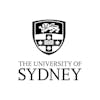|
Imagine living without a back door for five years.
That was the situation for a woman in the tiny remote community of Santa Teresa in the Northern Territory. She was one of a group of residents who sued their landlord, the territory government, for providing substandard housing.
After seven years, their legal battle finally came to an end yesterday when the High Court confirmed their right to compensation for the “distress and disappointment” caused by their dire homes.
As Chris Martin writes, it’s a hard-fought victory for a community that’s had a long road to justice: “There are many barriers to tenants fighting for what they’re entitled to, so it’s a remarkable result. The two leaders of the litigation died before the High Court handed down its decision. It is a memorial to them.”
While it’s too soon to tell how this ruling will apply in other states and territories, it’s likely to have similar results, Martin predicts. As is often the way, the devil will be in the detail.
Meanwhile, the neighbouring state of Queensland has always had bushfires, as climate sceptics are so fond of telling us. But the fires claiming homes in the Sunshine State are not normal, as fire experts from the University of Tasmania point out. They’re early – it’s still spring. And five times as many are burning through the night compared to an average October.
That’s a real worry, write Calum Cunningham and his colleagues. It means the region is so dry, with so little moisture in the air, that night-time brings no reprieve. It’s a deeply concerning sign ahead of a long, dry summer.
|

|
Erin Cooper-Douglas
Deputy Politics + Society Editor
|
|

Chris Martin, UNSW Sydney
The tiny remote community of Santa Teresa spent seven years fighting for compensation for poor public housing. Now that the High Court has ruled in their favour, what does it mean for other renters?
|

Calum Cunningham, University of Tasmania; David Bowman, University of Tasmania; Grant Williamson, University of Tasmania
Normally, many bushfires ease overnight, as temperatures fall and moisture in the air rises. But these are not normal times, as Queensland’s early-season fires are showing
|

Amy Peden, UNSW Sydney
As Australia heads into summer with an El Niño, it’s important understand and prepare for the health risks associated with extreme weather.
|

Moninya Roughan, UNSW Sydney; Amandine Schaeffer, UNSW Sydney; Junde Li; Shane Keating, UNSW Sydney
Giant eddy currents in the sea spread heat. But if trapped in place, they can cause marine heatwaves deadly to sea life. And there’s a big one shaping up off Sydney right now.
|

Ava Kalinauskas, University of Sydney; Samuel Garrett, University of Sydney
Anthony Albanese and Joe Biden have said climate will now be a critical component of the Australia-US relationship. Now they need to ensure it stays on the agenda.
|

Louise Grimmer, University of Tasmania; Martin Grimmer, University of Tasmania; Paul J. Maginn, The University of Western Australia
Different shoppers have different priorities, but some shops and services are ranked as important across the board.
|

Lucy Beaumont, The Conversation
Currently, when someone turns 65 they are not eligible to apply for NDIS support, even if they had disability before then. We asked experts if that should change.
|

Matthew Ricketson, Deakin University
Some see Elon Musk as an idiot savant; others think of him simply as an idiot. How did an unelected citizen come to wield such power?
|

Andrew Kingsford-Smith, UNSW Sydney; Hoa Nguyen, UNSW Sydney; Rebecca J Collie, UNSW Sydney; Tony Loughland, UNSW Sydney
New research shows how collaboration between teachers is linked to greater job satisfaction.
|

Zdenka Kuncic, University of Sydney; Ruomin Zhu, University of Sydney
A tangle of silver nanowires may pave the way to low-energy real-time machine learning.
|
Politics + Society
|
-
Michelle Grattan, University of Canberra
In this podcast, independent economist Chris Richardson joins The Conversation to discuss a rate rise, "sticky" inflation, the fall in the standard of living, and a bleak prospect as we go into 2024.
-
Vicki Sentas, UNSW Sydney
The Law Enforcement Conduct Commission has handed down a damning report into an unlawful policing strategy. It’s the latest example of First Nations children being over-policed.
-
Adrian Beaumont, The University of Melbourne
After a post-referendum drop in the polls, Labor has bounced back.
|
|
Health + Medicine
|
-
Ben White, Queensland University of Technology; Lindy Willmott, Queensland University of Technology
The first Australian Capital Territory voluntary assisted dying bill in more than 25 years was tabled in parliament yesterday. So what will MPs vote on? And how is it different to state legislation?
|
|
Science + Technology
|
-
David Ackerley, Te Herenga Waka — Victoria University of Wellington
Bacterial DNA extracted from soil includes many genes whose function remains unknown. The novel enzymes these genes code for could be useful in efforts to clean up persistent pollutants.
-
Samuel Cornell, UNSW Sydney; Amy Peden, UNSW Sydney
The content on social media platforms doesn’t always portray the locations accurately, setting unrealistic expectations and even luring tourists into trouble.
|
|
Books + Ideas
|
-
Anna Clark, University of Technology Sydney
The heated debate around the Voice referendum demonstrated Australian history is still up for grabs. So Kate Fullagar’s new book, Bennelong and Phillip, is both critical and timely.
|
|
Business + Economy
|
-
Michelle Grattan, University of Canberra
In this podcast, independent economist Chris Richardson joins The Conversation to discuss a rate rise, "sticky" inflation, the fall in the standard of living, and a bleak prospect as we go into 2024.
|
|
| |
|
|
|
|
| |
| |

|
| |
| |
| |
Featured Events, Courses & Podcasts
|
View all
|
|
1 January 2023 - 7 October 2026
•
|

|
7 November 2023
•
Sandy Bay
|

|
|
|

|
21 November 2023
•
Camperdown
|

|
|
|
|
| |
| |
| |
| |
| |
|
|